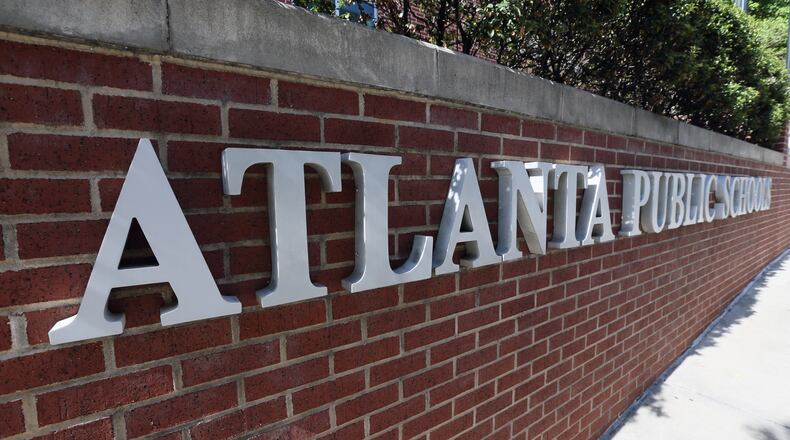Atlanta Public Schools will delay the completion of a facilities master plan because of uncertainty brought on by the pandemic.
The planning effort, along with an accompanying demographic study, is important because it will guide the district’s building and property needs for the next 10 years. The document will serve as a key decision-making tool as officials determine which schools could be expanded, closed or merged based on factors such as enrollment forecasts.
Work to update the plan began in June 2019, when the district signed a $900,000 contract with the Atlanta-based firm Sizemore Group to develop it.
Under the original time frame, APS expected to be wrapping up work on the document.
Instead, officials recently announced they will press pause for a year to 18 months, citing concerns about how the coronavirus pandemic could impact enrollment projections.
“We need better data, and COVID has kind of changed the landscape on a lot of things,” said board Chairman Jason Esteves.
Accurately predicting enrollment trends is a critical component of the planning work. Officials rely on population forecasts and anticipated housing growth to predict which schools may add or lose students.
But the pandemic has cast uncertainty over those projections. Larry Hoskins, chief operating officer for APS, told board members last month that he’s “extremely concerned” about whether population forecasts made before the pandemic will change.
“We are now kind of wondering if, in fact, the region will experience the same growth projected prior to COVID, post-COVID,” he said.
In the year ending April 1, 2020, the city of Atlanta added 7,700 new residents, according to the Atlanta Regional Commission. Over the previous year-long period, the city grew by 10,900 people. The agency’s population forecasts are among the sources officials will look at when developing the APS plan.
Paul Donsky, the commission’s senior manager of communications and marketing, said “it’s too early to say how the pandemic may impact population changes in the future.”
“The region’s growth is largely fueled by job growth, so any downturn in the economy could have an impact on population,” he wrote in an email.
A preliminary report released in early 2020 on the district’s planning work thus far projected that each of the district’s nine geographical clusters would add students by 2030. The biggest percentage gain was predicted for the schools that feed into and include Maynard Jackson High School near Grant Park.
APS, like other districts around the state, saw numbers drop this year. After several consecutive years of gains, APS enrollment fell by about 1,400 students. Kindergarten is not compulsory in Georgia and experts partly attribute a decrease to the challenges young children face learning online.
Parents and community members are expected to closely watch the decisions guided by the facilities master plan. Building new schools, selling surplus properties or changing attendance zone boundaries are among the most controversial moves made by a school district.
The district intends to hold more public meetings to gather input as it develops the plan, and that’s one more reason the work has been pushed back. Social distancing guidelines make it challenging to gather in-person during the pandemic.
APS enrollment by decade
1950-1951: 50,148
1960-1961: 97,866
1970-1971: 105,232
1980-1981: 71,897
1990-1991: 60,799
2000-2001: 58,230
2010-2011: 49,796
2020-2021: 51,012
Source: Atlanta Public Schools, Georgia Department of Education
About the Author
The Latest
Featured



